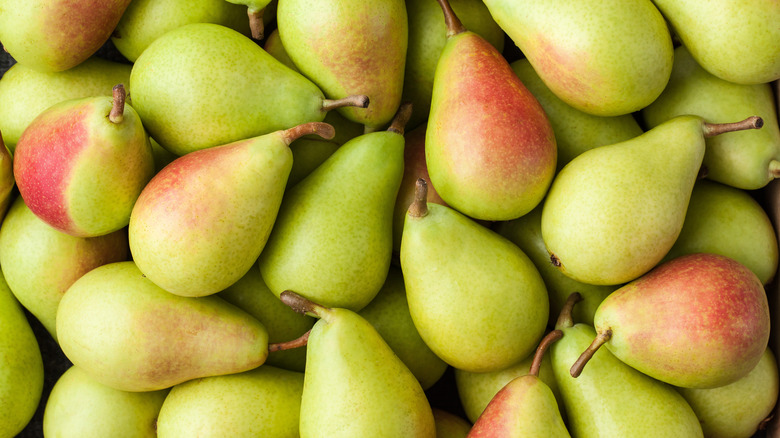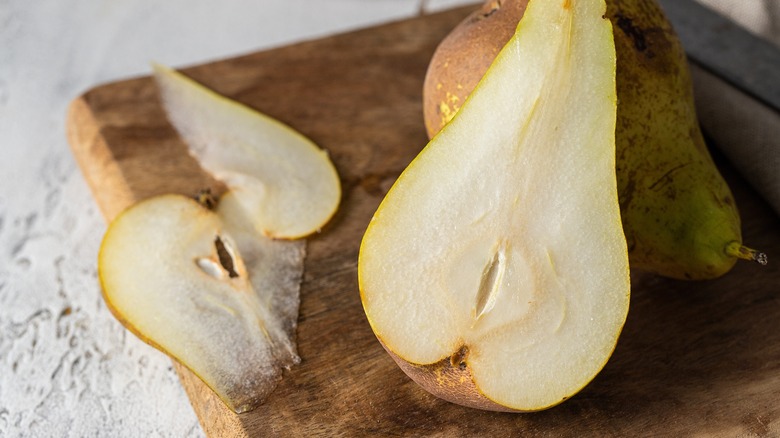Why You Should Leave The Skin On Pears
Many people are familiar with the benefits of eating their apples unpeeled. As Eat This, Not That notes, apple peels contain much of the fruit's vitamins and minerals, so peeling apples significantly reduces their nutritional content. But does the same rule apply to pears?
Notably, pears and apples are closely related. According to The Spruce Eats, both are pomes — a category that also includes quinces, loquats, Asian pears, and medlars. Therefore, it makes sense that, as is the case with apples, pears provide the most nutritional benefits when eaten unpeeled.
Some may be apprehensive about eating pears (or other fruit) with the skin, as the fruit's exterior may have pesticide residue. However, according to Livestrong, pear peels pose very little risk. Conventional pears contain low levels of pesticides, making them fairly safe, but if you're still concerned, simply choose organic options and give them a rinse prior to eating. Food Network even gives tips on washing fruit with peels.
Benefits of eating pear peels
According to Livestrong, eating an unpeeled pear will give you 5.5 grams of fiber. You're left with less than half that fiber quantity if you take away the peel. As Healthline points out, fiber plays a key role in one's digestive health, improving conditions like constipation and helping to regulate bowel movements. Pears are also considered prebiotics, meaning that they contain soluble fiber that feeds the gut's good bacteria. According to the site, one pear can provide 22% of an individual's daily fiber requirement.
Per Healthline, pear skins also contain beneficial compounds that aren't present in the rest of the fruit. For example, the peels of red pears contain anthocyanins, which "may improve heart health and strengthen blood vessels." Meanwhile, the skins of green pears contain both lutein and zeaxanthin, two compounds that contribute to good vision.
Lastly, you'll want to avoid peeling pears to maximize the fruit's antioxidant quantity. After all, pears have six times more polyphenol antioxidants in their skin than in the rest of the flesh, according to Healthline.

